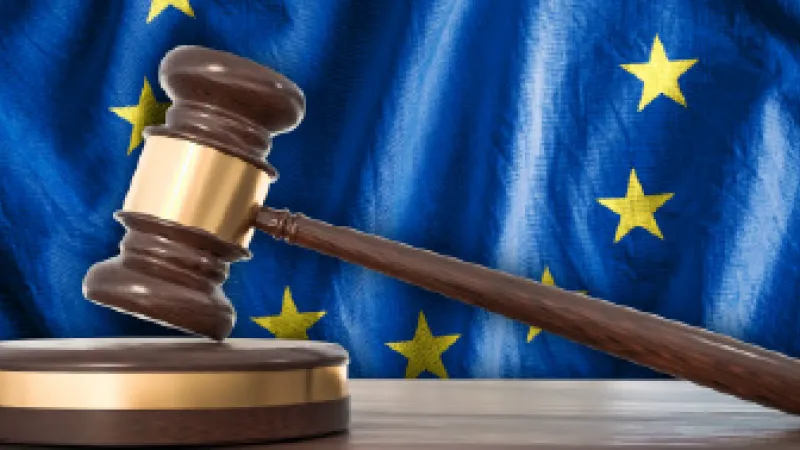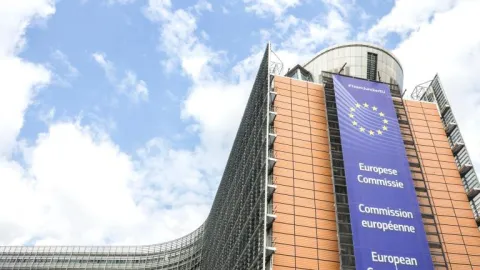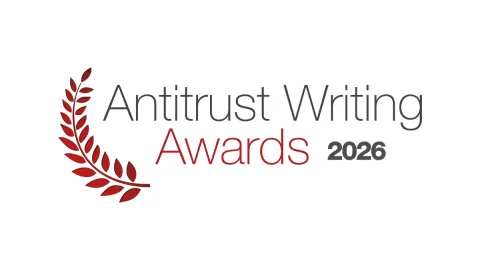The Scope of Application of EU Competition Law & Where to Draw the Line for Blacklist-Documents
November 12, 2025
The protection of leniency applicants in the context of private damages actions is a never-ending story; when it comes to determining which interest should prevail, the issue keeps chasing its own tail. On the one hand, private enforcement of competition law is regarded as a cornerstone of antitrust enforcement and, according to established case law of the CJEU is also required under primary EU law. On the other hand, leniency programmes remain essential instruments for uncovering cartels and are therefore considered crucial for public enforcement (see the eg, the view of the President of the German Bundeskartellamt Mundt or former Commissioner Vestager).
As a result, courts and competition authorities – both, on a national and EU-level – are facing the recurring challenge of performing this balancing act when interpreting and applying the legal provisions on the protection of leniency applicants.
In its judgment of 30th October 2025 in Case C-2/23, which follows almost exactly one year after the respective Opinion of AG Szpunar (see in detail in a previous blogpost), the CJEU provides several points of guidance for precisely this balancing exercise. The Court decided that a provision allowing national competition authorities to pass on blacklist-documents to law enforcement authorities is not in itself contrary to EU law – provided that access is restricted to the accused parties only.
Moreover, the decision also came with some general findings:
· Well-functioning – ie, attractive – leniency programmes serve the public interest; consequently, undermining them would impair the effective enforcement of Article 101 TFEU and would thus be contrary to EU primary law and the principle of effectiveness.
· Only the leniency statement itself (or the settlement submission, respectively) can be regarded as a blacklisted document; any annexes or documents based on leniency statements are not covered by the blacklist protection.
· The protection of blacklisted documents is not absolute: accused parties in criminal proceedings may be granted access, even if they were not the authors of the blacklist-documents. However, injured parties still do not have access to blacklist-documents. This also applies if these private parties are involved in criminal proceedings.
Background
The preliminary reference concerns a provision that allows for the transmission of the competition file – or at least documents from it – by way of mutual assistance between authorities. In the case at hand, the Austrian Public Prosecutor’s Office for Combating Economic Crimes and Corruption (“WKStA”) requested the Federal Competition Authority (“BWB”) to transmit its investigation file. This file also contained leniency statements, which are protected (together with settlement submissions the so-called „blacklist-documents“) under EU secondary law.
However, due to the extensive rights of the accused in criminal proceedings, the transmission of these documents to the WKStA would also mean that the accused must be granted unrestricted access to them – including to the leniency statements they contain. The referring Austrian court (the Higher Regional Court of Vienna, “OLG Wien”) therefore sought to clarify whether such disclosure is compatible with the rules for protecting blacklist-documents which are laid down in Directive 2014/104/EU („Damages Directive“) as well as the Directive 2019/1/EU („ECN+ Directive“).
These rights of access generally also extend to so-called “private parties”, ie, individuals or entities harmed as a result of the alleged offence. They can thereby also acquire party status in the proceedings.
The Court of Justice subsequently reformulated the questions so as to first address the scope of EU law. On the one hand, the question arose as to which constellations the directives are applicable to. On the other hand, it had to be clarified to what extent EU law can have an effect on national authorities even where the matter in question, as such, does not fall within the scope of EU competence.
In a further step, the question of delineation of the protected documents arose. Does the prohibition of disclosure also extend to annexes attached to the leniency statement?
Setting the scene: the scope of the ECN+ Directive and the Damages Directive
The referring court first sought to determine whether the mere inclusion of a leniency statement in the enforcement authority’s investigation file is contrary to the protection of blacklist-documents. It instead focuses on whether the Damages Directive and the ECN+ Directive apply to law enforcement authorities other than NCAs, as this determines whether such inclusion is permissible.
Following GA Szpunar’s view in his Opinion, the CJEU states that the Damages Directives‘ material scope is limited to matters that are related to damages actions and does not extend to other types of actions. This means, the Damages Directive has no reach in matters that deal (i) either with the transfer of the file between competition authorities or (ii) with access to the file other than in the actions for damages (para 46).
The situation is somewhat different concerning to the ECN+ Directive. As it serves to ensure the effective application of Articles 101 and 102 TFEU, it has a broader scope compared to the Damages Directive. It can even apply to purely national situations, given that it is somehow linked to competition law. However, the CJEU considers national provisions on mutual administrative or judicial assistance between law enforcement authorities as not inherently linked to competition law. This matter therefore cannot be assessed under the ECN+ Directive, but solely in light of the principle of the practical effectiveness of Article 101 TFEU (paras 50, 57).
EU law and national legal orders: effectiveness prevails
As a next step, the CJEU also sets the scene for the relationship between Member States‘ national law and EU law and, in particular, how EU law has reach to matters that fall within the exclusive competence of the Member States.
With reference to Caronte & Tourist, the CJEU states that Member States in any case have to safeguard an effective application of EU law – regardless of which competence the respective matter falls under. This also applies to matters that are not in itself intended to enforce EU law (paras 61, 62).
Given the importance of leniency programmes for detecting and preventing competition law infringements, they „serve […] the objective of effective application of Articles 101 TFEU and 102 TFEU“. Anything that can potentially put the effectiveness of these programmes at risk could therefore also undermine this general objective. If potential leniency applicants were faced with the risk of comprehensive disclosure, the attractiveness of this programme would be significantly reduced (para 63).
As held in previous decisions (see in particular the CJEU’s judgments in Pfleiderer, Donau Chemie), the risk of disclosure of particularly self-incriminating material can deter undertakings from applying for leniency. Therefore, blacklist-documents are supposed to be protected from any disclosure whatsoever. The same applies to verbatim quotations. Accordingly, they may not be shared with potentially injured parties or any third parties. This chilling effect can also be triggered in proceedings outside of competition law – as already stated by AG Szpunar in his Opinion (paras 66 and 69 of the Opinion). Although the mechanism of mutual assistance does not even fall under the scope of the two directives, this mechanism still has the potential to put the attractiveness of the leniency programme at risk. Therefore, the national legislators must ensure the incentive effect of the leniency programme when creating the legal framework for mutual administrative assistance (para 65).
It can therefore be concluded that a provision allowing the transmission of blacklist-documents is not, in itself, contrary to EU law. However, such a provision must be designed in a way that does not undermine the effectiveness of competition law enforcement (para 66).
This, however, leads to the next question: how can such a provision be designed to meet this requirement?
Setting boundaries: how to delineate the "blacklist“
Before addressing the question of how the CJEU defines the scope of blacklist-documents, it is first worth remembering: ‘blacklist-status‘ means ‘first-class‘ protection, as these documents must never be disclosed to damages claimants and cannot be used in such actions.
Even though the accused undertakings in cartel proceedings must generally be granted access to these documents, their use is limited to the exercise of their rights of defence (see Article 31(3) and (4) of the ECN+ Directive). By contrast, such documents may never be disclosed for the purpose of pursuing private damages actions (see Article 6(6) of the Damages Directive).
In its decision, the CJEU provides national legislators and legal practitioners with two guiding parameters regarding the material scope of protection: first, the extent of the protected blacklist-documents, and second, the point at which the fundamental rights limit of this protective scope begins.
Regarding the scope of blacklist-documents, the CJEU undertakes an interpretation of the legal definitions of “leniency statement” (Article 2(1)(17) of the ECN+ Directive) and “settlement submission” (Article 2(1)(18) of the ECN+ Directive). For the sake of completeness: The same understanding applies under the Damages Directive, whose definitions are materially identical.
Under Article 2(1)(17) ECN+ Directive (the corresponding provision of the Damages Directive can be found in Art 2(1)(16)), leniency statements are characterized as „an oral or written presentation voluntarily provided […] specifically for submission to the authority, describing the knowledge […] of a cartel […] to obtaining immunity or reduction of fines […]“. It does explicitly not include „pre-existing information“, eg, any evidence that exists independently of the enforcement proceedings.
Building on this, the CJEU – with reference to the corresponding preliminary question – does not regard supporting documents or annexes to the leniency statement as blacklist-documents in themselves. This, on one hand, because these documents can usually be qualified as "pre-existing documents“ (para 72). On the other hand, the CJEU relies on its Evonik Degussa judgment, where it held that disclosing information supporting the leniency statement was permissible (para 75).
As a result, the CJEU therefore does not recognise equivalent protection for documents (i) that either constitute annexes to the statement itself or (ii) that were drawn up on the basis of leniency statements (insofar as they do not contain verbatim quotations) (para 76).
Where to draw the line: who may have access to blacklist-documents?
The Austrian provision at issue stipulates that, by transmitting the documents to the public prosecutor’s office, accused persons and private parties who are not the authors of the blacklist-documents also can also get access to the latter.
In this question, the line becomes apparent between EU primary law (particularly the fundamental rights enshrined in the Charter of Fundamental Rights) and the secondary-law rules on non-disclosure. In the CJEU’s view, these principles serve as a standard of interpretation for secondary law (para 82).
Concerning to the provision at issue, the right to an effective remedy and to a fair trial (Article 47 of the Charter) and the rights of the defence (Article 48(2) of the Charter) are of particular relevance. Given their material overlap, the CJEU held that – with reference to its judgment K.B. and F.S. – Articles 6 and 13 of the ECHR apply as minimum standards of protection (para 84).
Defence rights over effective public enforcement
Who can invoke these rights to access leniency statements? The CJEU ultimately derives its reasoning from ECtHR case law. In Yakuba v. Ukraine, the ECtHR stated that the general requirement for the prosecution authorities to disclose all material evidence they possess to the accused party is not absolute. However, any restriction of access to file has to be strictly necessary to protect either (i) the fundamental rights of another individual or (ii) to safeguard an important public interest (para 84).
Effective public enforcement over private enforcement
As for the group of persons who could invoke the right of defence or the right to effective judicial protection under the Charter – and, on that basis, claim access to leniency statements – the CJEU draws a clear line. Article 31(3) of the ECN+ Directive grants access to leniency statements only to the parties "subject to the relevant proceedings“, and even then, solely for the purpose of exercising their rights of defence. In this context, the term ‘relevant proceedings‘ is limited to “enforcement proceedings initiated by the national competition authority“ (cf, Article 2(9) ECN+ Directive). Accordingly, injured parties who are not parties to those proceedings but merely intend to bring a follow-on damages action are expressly excluded from this provision (para 88). Therefore, a national provision that allows individuals other than the accused in criminal investigation proceedings to have access to blacklist-documents runs against 31(3) ECN+ Directive (read together with the above cited procedural rights, enshrined in the Charter) (para 92).
With regard to the Austrian provision at issue, an interpretation as it would allow access to blacklist-documents to persons who were neither (i) defendants in the respective criminal proceedings nor (ii) parties in the parallel enforcement proceedings conducted by the competition authority runs against EU law.
Higher bar for restricting defence rights for
In Mirilachvili v. Russia, the ECtHR held that the mere fact that a document can, in principle, be classified as belonging to the 'blacklist-category‘ and therefore relates to a certain public interest (ie, confidentiality of the document and effectiveness of EU competition law) does not justify a blanket refusal to disclose such a document (paras 85, 86).
To ensure the protection of the rights of persons under investigation in criminal proceedings, as guaranteed in the Charter, the 'blacklist-protection‘ in the ECN+ Directive cannot be interpreted as absolutely preventing those persons from accessing blacklist-documents within the case file – particularly, in case such documents form the basis of the complaints against them. Rather, to safeguard the protection of any refusal of access must be justified on the basis of the document’s specific, case-by-case analysis of its content (para 86).
Conclusion and Outlook – The Case-by-Case Balance between Transparency and Effectiveness
Once again, leniency protection remains a matter of public interest extending beyond the scope of the Damages Directive and ECN+ Directive. It also shows that neither the right of access for defence purposes nor the protection against disclosure is absolute. Both has to be weighed against each other on a case-by-case basis within a clear proportionality framework. The CJEU provides guidance, but the practical task of balancing these interests remains with national authorities and courts. For potential leniency applicants, a residual risk of disclosure therefore persists. However, the CJEU assigns a high value to leniency protection and sets strict limits for any disclosure of blacklist-documents. In criminal proceedings, only the accused parties may access this type of evidence, and even then only under the safeguards developed in ECtHR case law. Outside this narrow group, disclosure still remains prohibited. Member States must thus ensure that their procedural rules preserve this high level of protection while respecting fundamental rights.
You may also like







